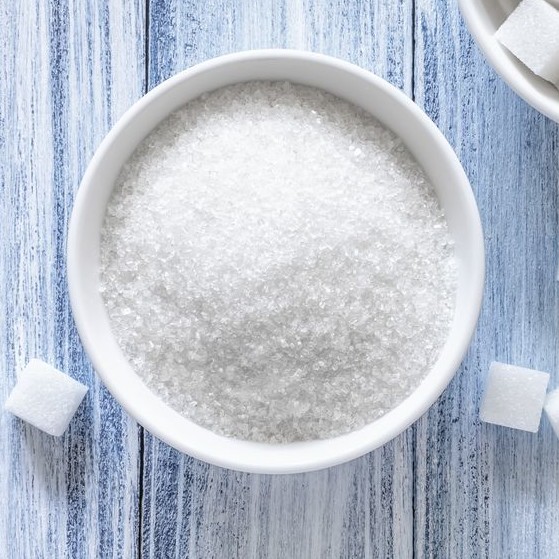Understanding Cane Sugar Processing: A Comprehensive Introduction of the Stages
Understanding Cane Sugar Processing: A Comprehensive Introduction of the Stages
Blog Article
An In-depth Summary of the Wellness and Economic Effects of Cane Sugar Handling on Local Neighborhoods
Walking stick sugar processing plays an essential role in shaping the financial landscape of neighborhood communities, offering employment possibility and boosting supplementary markets. However, the health ramifications connected with high sugar consumption can not be forgotten, as they add to increasing rates of excessive weight and diabetes. This nuanced dynamic welcomes an essential exam of exactly how areas can optimize financial gains while dealing with the pushing health and wellness challenges they deal with. The expedition of sustainable techniques and instructional campaigns might simply hold the trick to fixing up these clashing rate of interests. What approaches might areas apply to attain this equilibrium?
Financial Advantages of Walking Cane Sugar Processing
Cane sugar handling provides considerable financial benefits that expand past the instant farming industry. The cultivation and handling of sugarcane create numerous job opportunities, from farming to production and distribution. This employment generation not just supports neighborhood economic climates but additionally promotes community development by supplying stable income resources for family members.
Furthermore, the sugar industry promotes secondary services, including transport, tools supply, and packaging services (Cane Sugar Processing). As these industries expand, they add to an extra robust economic structure, improving overall neighborhood strength. The export potential of refined cane sugar additionally intensifies economic advantages, placing areas as affordable gamers in global markets
Investment in modern processing centers can result in enhanced performance and efficiency, thus lowering waste and optimizing resource use. This change not only profits the regional economic climate however likewise supports sustainability efforts by decreasing environmental impacts.
Furthermore, the income created from walking stick sugar processing can be reinvested in regional facilities, education, and health care, promoting all natural area growth. Generally, the financial benefits of walking stick sugar handling are complex, giving a structure for sustaining success in farming regions.
Health And Wellness Threats Connected With Sugar Usage
Excessive sugar consumption positions considerable health threats that call for serious interest. High consumption of added sugars, specifically from processed beverages and foods, has been linked to countless wellness issues.
Moreover, high sugar usage is linked with cardiovascular illness. Elevated blood sugar level degrees can lead to insulin resistance, a forerunner to numerous heart-related problems. In addition, sugar can have harmful results on dental wellness, causing dental caries and periodontal disease, as germs in the mouth prosper on sugar, generating acids that deteriorate tooth enamel.
Moreover, arising study suggests a prospective web link between high sugar intake and mental health disorders, such as depression and stress and anxiety. As areas face these wellness dangers, it ends up being important to promote recognition and motivate healthier dietary choices. Dealing with sugar intake is important not just for private health however likewise for the general well-being of neighborhood neighborhoods, highlighting the demand for extensive public wellness strategies.
Environmental Influences of Sugar Production
Often neglected in conversations concerning sugar's effects is the substantial ecological effect of sugar production. The growing of sugarcane frequently necessitates extensive land usage, leading to deforestation, loss of biodiversity, and disruption of regional environments. The conversion of forests and marshes into sugar ranches can cause habitat destruction, threatening numerous species and changing environmental balance.
Additionally, sugar production is resource-intensive, consuming considerable quantities of water for watering. This can cause deficiency of regional water sources, detrimentally impacting both agricultural methods and area accessibility to tidy water. Additionally, making use of chemical plant foods and chemicals in sugarcane farming can add to soil deterioration and water pollution, as runoff from these chemicals gets in nearby rivers and lakes, impacting marine life and human health.
The environmental footprint reaches the handling stage, where power consumption and waste generation more aggravate ecological worries. Air contamination from melting sugarcane areas, together with greenhouse gas emissions, add to climate change. As such, the environmental effects of sugar production warrant serious consideration, prompting stakeholders to take on even more sustainable techniques to mitigate these negative impacts on local communities and areas.
Task Production and Area Development
The ecological difficulties posed by sugar manufacturing are frequently counterbalanced by its capacity for economic benefits, specifically in job development and neighborhood advancement. The walking stick sugar industry acts as a considerable source of work in lots of backwoods, supplying work throughout different skill levels, from farming labor to processing and circulation functions. This employment not just supports private families but additionally adds to the general financial vigor of local neighborhoods.
In addition, the facility of sugar processing centers boosts secondary services, such as transport solutions, equipment supply, and maintenance suppliers. As these services flourish, they create additional tasks and reinforce local economic climates. The earnings produced from the sugar sector likewise results in raised tax incomes, which can be reinvested right into social work such as facilities, medical care, and education and learning advancement.
In addition, the sugar market typically takes part in area advancement initiatives, such as sustaining regional schools and wellness programs, thereby improving the lifestyle for locals. By like this fostering solid community connections and advertising economic development, the walking cane sugar processing sector plays an important function in uplifting neighborhood populaces, making it a crucial element of lasting growth techniques in sugar-producing areas.
Balancing Wellness and Economic Growth
In navigating the intricacies of walking stick sugar handling, an important challenge depends on stabilizing wellness factors to consider with economic growth. The sugar industry significantly adds to regional economic climates by generating tasks, boosting related markets, and increasing tax obligation incomes. Nonetheless, the wellness implications connected with too much sugar consumption can bring about persistent illness such as excessive weight, diabetes, and cardiovascular issues, which can worry public health systems and decrease workforce performance.

Moreover, governing structures can play a crucial role in guiding market practices in the direction of more lasting and health-conscious techniques. By cultivating partnership in between federal government bodies, wellness companies, and the sugar sector, communities can browse the dichotomy of wellness and financial growth, making certain that the advantages of cane sugar processing are equitably shared while prioritizing public health and wellness.
Verdict
Finally, the processing of walking stick sugar presents both substantial economic advantages and notable wellness dangers for neighborhood communities. While it cultivates task production and promotes regional advancement, the associated wellness concerns, specifically pertaining to weight problems and diabetes, necessitate a careful harmonizing act. By try this advertising responsible usage and investing in neighborhood education and lasting techniques, it is possible to maximize financial benefits while reducing unfavorable health and wellness results, consequently guaranteeing a healthier future for local populaces.
Additionally, sugar can have destructive impacts on oral health and wellness, resulting in cavities and gum tissue illness, as bacteria in the mouth flourish on sugar, generating acids that deteriorate tooth enamel.
Addressing sugar usage is essential not just for individual health but also for the general well-being of local neighborhoods, emphasizing the need for thorough public wellness strategies.
Frequently forgotten in conversations regarding sugar's ramifications is the substantial environmental impact of sugar manufacturing. The health and wellness implications linked with excessive sugar consumption can lead to persistent diseases such as weight problems, diabetes, and cardio concerns, which can problem public health systems and diminish labor force efficiency.

Report this page